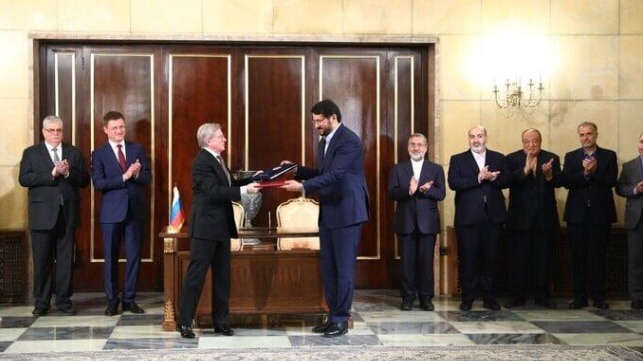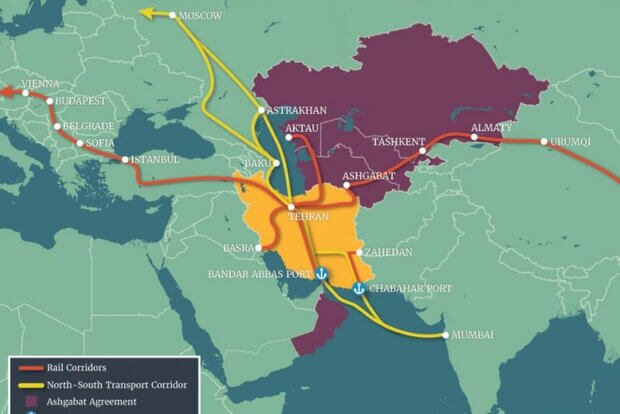Russia and Iran Sign $1.6B Deal to Complete Baltic-to-Hormuz Rail Link

Iran and Russia have finalized a long-awaited $1.6 billion project to build the last stretch of a rail network stretching from St. Petersburg to Bandar Abbas, on the Strait of Hormuz.
The so-called North-South Corridor project is a rail and sea link providing Russia with overland rail freight access to the Indian Ocean via the Azeri and Iranian rail lines, and it has been under discussion and development since 2000. On the northern side, the rail link is complete up to the town of Astara, on the border between Azerbaijan and Iran. Cargo operations have been in service to Astara since 2018, delivering about 400,000 tonnes a year of cargo as far as the Iranian side of the border - but no further by rail.
The as-yet-unfinished segment stretches between Astara and the city of Rasht, along Iran's relatively flat Caspian Sea coastline. While not as technically challenging as the mountainous stretch of the line to the north of the border, the Rasht-Astara rail segment has been delayed repeatedly because of funding. Struggling under sanctions, Iran has not been able to finance its construction.
On Wednesday, Iranian President Ebrahim Raeisi and Russian President Vladimir Putin approved a new agreement to underwrite the construction of the Rasht-Astara line. The $1.6 billion deal will cover joint financing for the project.

The North-South Corridor will facilitate Russia's access to the Indian Ocean for freight movement (Mehr News)
“Without a doubt, this agreement is an important and strategic step in the direction of cooperation between Tehran and Moscow,” said Raeisi at the ceremony.
The rail corridor will improve connectivity for goods of all kinds between Bandar Abbas and Russia. Along with an upgraded marine transport link across the Caspian from Iran to the Volga, it will significantly increase Russia's ability to import goods through Iran's main container port, creating a new route for evasion of Western sanctions on Russian trade. Iran is a significant supporter of the Russian invasion of Ukraine, providing drone technology used to target civilian infrastructure behind the front lines, and it leverages a network of front companies to evade U.S. sanctions on its UAV and missile programs.
“Any steps or any project being undertaken to go around sanctions is something that we of course would find deeply concerning,” U.S. State Department spokesman Vedant Patel said in response to the news of the Iran-Russia rail deal on Wednesday.
The agreement was greeted warmly by the Russian government. "The unique North-South transport corridor, of which the Rasht-Astara railway will become a part, will help to significantly diversify global traffic flows. Transportation along the new corridor will have significant competitive advantages," Russian President Vladimir Putin said at the signing.

that matters most
Get the latest maritime news delivered to your inbox daily.
In parallel, on the same day, Russia and Iran signed a new agreement on facilitating rapid customs clearance for transborder cargoes. "The increase in the number of goods exchanged in this corridor, including technological goods, will lead to an increase in the volume of trade transactions," said Ruslan Davydov, the head of Russia's Federal Customs Service (FCS).
Images courtesy Mehr News / CC BY SA 4.0
